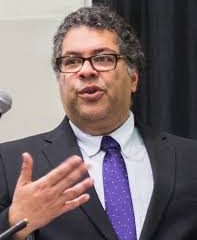The Impact and Legacy of George Bush

Introduction
The presidencies of George H.W. Bush and George W. Bush have significantly shaped the political landscape of the United States and had lasting effects on global relations. Understanding their legacies offers insights into contemporary issues, reflecting both successes and challenges faced during their terms. As the world continues to evolve, the relevance of their policies and decisions remains poignant, prompting ongoing discussions among politicians, historians, and the public.
The George H.W. Bush Presidency (1989-1993)
George H.W. Bush, the 41st president of the United States, took office after a decade marked by economic prosperity but also challenges such as rising Soviet tensions. His presidency is often remembered for pivotal events including the fall of the Berlin Wall, the Gulf War in 1991, and efforts to manage the end of the Cold War. Bush’s foreign policy strategies emphasized diplomacy and coalition-building, establishing a framework for future American international relations.
Key Achievements and Controversies
George H.W. Bush’s administration is credited with important legislative achievements, including the Americans with Disabilities Act of 1990, which aimed to protect the rights of disabled Americans. However, his administration also faced criticism for domestic issues, particularly economic downturns leading to the recession of the early 1990s, which ultimately contributed to his loss in the 1992 election to Bill Clinton.
The George W. Bush Presidency (2001-2009)
The son of George H.W. Bush, George W. Bush became the 43rd president amid remarkable events that shaped his two terms in office. His presidency was defined by the response to the September 11 terrorist attacks in 2001, leading to the wars in Afghanistan and Iraq. The latter, in particular, has become a contentious subject with lasting geopolitical ramifications.
Legacy and Current Relevance
George W. Bush’s legacy is mixed, with supporters citing his leadership during crises and efforts to promote global health initiatives through PEPFAR (the President’s Emergency Plan for AIDS Relief), while critics point to the prolonged military conflicts and their aftermath. As current events continue to unfold, including tensions in the Middle East and discussions around U.S. foreign policy, the Bush presidencies provide valuable lessons in governance, leadership, and diplomacy.
Conclusion
Understanding the legacies of both George H.W. Bush and George W. Bush is crucial in comprehending the complexities of American politics today. While both presidents faced distinct challenges, their impacts are woven into the fabric of current global and domestic policies. As discussions around their administrations persist, one thing remains clear: the influence of the Bush family on American history is undeniable, and their experiences will continue to shape political dialogues for years to come.





